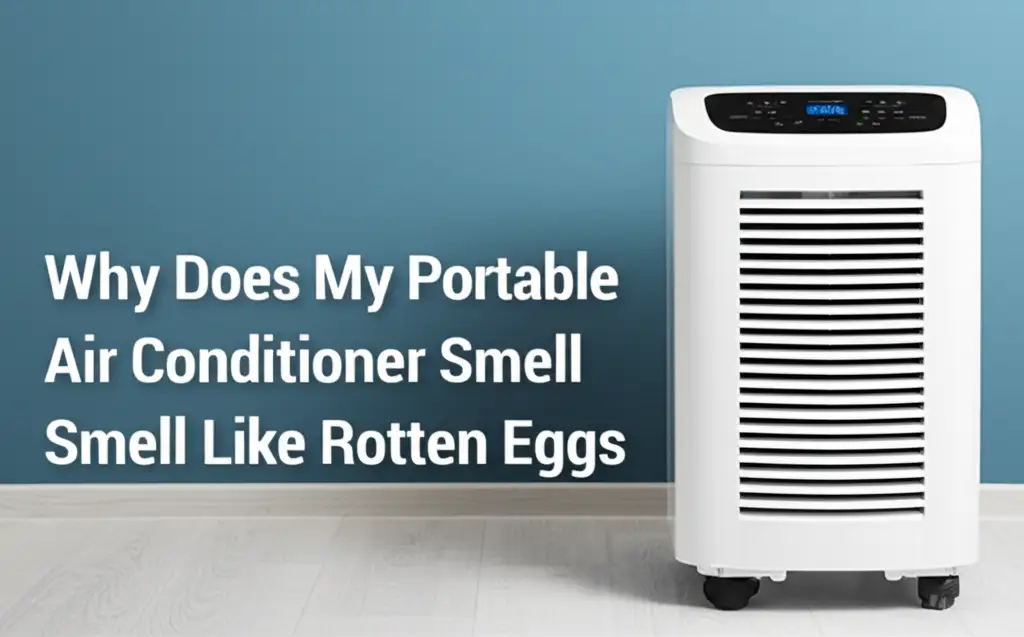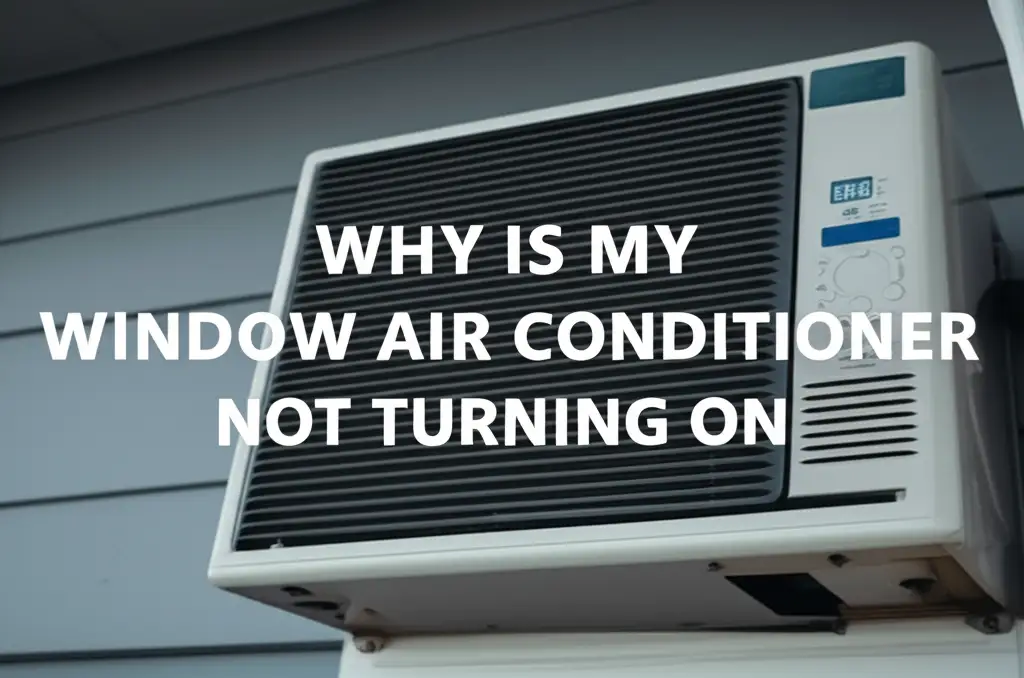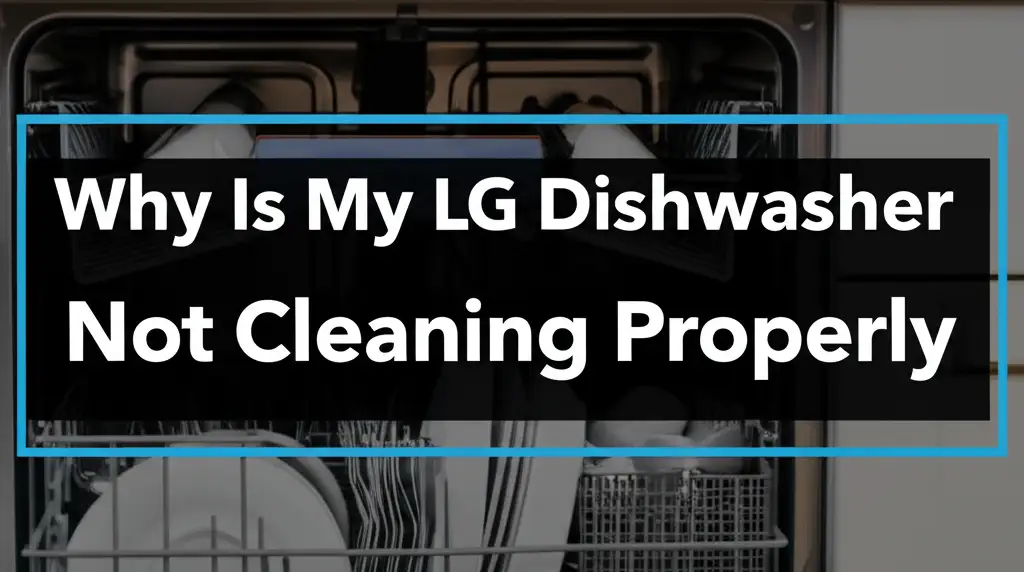· Todd Martin · Home Appliances · 17 min read
Why Does My Portable Air Conditioner Smell Like Rotten Eggs

Why Your Portable Air Conditioner Smells Like Rotten Eggs
Opening your portable air conditioner and getting hit with a putrid smell can be jarring. It can smell like rotten eggs, a sulfur-like odor that fills your room. This unpleasant smell is more than just a nuisance. It often points to a problem inside your unit. You want to understand what causes this smell. More importantly, you need to know how to fix it.
This smell usually means you have bacterial growth. It thrives in damp, dark places. Your portable AC provides this perfect environment. We will explore the common reasons why your portable air conditioner smells like rotten eggs. We will also give you clear, actionable steps to eliminate the odor. You will learn about condensate issues, dirty components, and proper maintenance. Let’s make your indoor air fresh again.
Takeaway
- Clean standing water: Empty the condensate tank regularly.
- Prevent bacterial growth: Use a mild disinfectant in the water tank.
- Clean components: Wash air filters, coils, and drain lines.
- Ensure proper drainage: Check for clogs in the drain hose.
- Schedule regular maintenance: Clean your portable AC unit often.
Your portable air conditioner smells like rotten eggs because of bacterial growth. This growth happens in stagnant water within the unit’s condensate pan or drain line. These bacteria produce hydrogen sulfide gas, which creates the distinct sulfur smell. Regular cleaning and drainage prevent this issue.
Understanding the Rotten Egg Odor in Your Portable AC
That foul rotten egg smell coming from your portable air conditioner is unmistakable. It is very unpleasant. This specific odor signals a chemical process. Bacteria in your unit create hydrogen sulfide gas. This gas is what you smell. We call it “sulfur gas.”
This gas is often a byproduct of anaerobic bacteria. These bacteria live without oxygen. They thrive in wet, dark places. Your portable AC unit has these perfect conditions. Water collects inside the unit. Dirt and debris also build up. This combination makes an ideal breeding ground for these odor-causing bacteria. Understanding this basic process helps you identify the problem. It also helps you find the right solution for your unit.
The Role of Hydrogen Sulfide Gas
Hydrogen sulfide is a gas. It smells like rotten eggs. This gas forms when certain bacteria break down organic matter. These bacteria are sulfur-reducing bacteria. They use sulfur compounds for energy. They release hydrogen sulfide as a waste product.
Your portable AC provides a perfect environment for them. It has standing water and organic debris. This organic debris can be dust, pet dander, or mold spores. When these elements mix, the bacteria flourish. They create the awful odor.
Common Causes of Rotten Egg Smell in Portable AC Units
Many different issues can cause your portable air conditioner to smell like rotten eggs. Most of these issues involve moisture and organic material. Understanding each cause helps you pinpoint the specific problem. This makes it easier to fix. We will look at the most frequent culprits.
These culprits include stagnant water, dirty coils, and clogged filters. They all create conditions for bacterial growth. Regular checks can prevent many of these problems. Ignoring them will only make the smell worse.
Stagnant Water in the Condensate Pan
Stagnant water is the number one cause of bad smells. Portable air conditioners remove moisture from the air. This moisture collects in a condensate pan or tank. This water should drain or evaporate. Sometimes, it sits there.
This standing water becomes a breeding ground. Bacteria, mold, and mildew grow rapidly in it. They produce the sulfur smell you detect. You must empty your condensate pan often. This prevents water from sitting too long. If your unit keeps filling with water quickly, this is a major clue. You can learn more about this common issue: Why Does My Portable Air Conditioner Keep Filling Up With Water.
Why Standing Water is a Problem
Portable AC units remove humidity. This humidity condenses into water. This water drips into a pan. Some units automatically evaporate this water. Others need manual draining. If the water stays in the pan, it turns into a swamp.
Dust, dirt, and organic particles fall into this water. Bacteria feed on these particles. They multiply quickly. Their waste products release the rotten egg smell. This is why a regular drain is so important.
How to Address Stagnant Water
You must drain your portable AC unit regularly. Check your owner’s manual for specific instructions. Most units have a drain plug at the bottom. You can usually attach a hose for continuous drainage.
Clean the condensate pan. Use a mix of water and mild detergent. You can also use a small amount of bleach solution (1 part bleach to 16 parts water). This kills bacteria and mold. Ensure you rinse it well. Emptying the tank is a key step. Learn how to clean your unit’s water tank: How To Clean Portable Air Conditioner Water Tank.
Dirty or Moldy Evaporator Coils
The evaporator coils are cold. Air passes over them. Humidity condenses on these coils. Dust, dirt, and lint also stick to the wet coils. This creates a moist, dirty surface. It is perfect for mold and bacteria to grow.
Mold and mildew can produce a musty smell. However, certain types of bacteria and fungi on the coils can also contribute to a sulfurous odor. This depends on what organic matter they feed on. Cleaning these coils is important. This prevents odors.
Why Coils Get Dirty
Evaporator coils are inside your unit. They get wet during operation. Air circulates constantly over them. This air carries dust, pet hair, and microscopic debris. These particles stick to the wet coil surface.
Over time, this accumulation becomes thick. It traps moisture. This damp, dark environment is ideal for microbial growth. This growth includes the bacteria that make hydrogen sulfide.
How to Clean Evaporator Coils
Cleaning evaporator coils needs care. First, unplug your portable AC. Locate the evaporator coils. They are usually behind the air filter. Use a soft brush to remove loose debris.
Then, use a specialized coil cleaner. You can find these at hardware stores. Spray it according to the product directions. Let it work. Wipe the coils gently with a damp cloth. Make sure the coils are dry before using the unit. Cleaning your AC coils is a specific task. You can find more detailed instructions here: How To Clean Air Conditioner Coils.
Clogged or Dirty Air Filter
Your portable AC has an air filter. This filter traps dust, pollen, and other airborne particles. Over time, the filter gets clogged. It becomes saturated with debris. This trapped debris also holds moisture.
A dirty filter reduces airflow. It also becomes a breeding ground for bacteria and mold. These microbes can produce various odors, including the rotten egg smell. Changing or cleaning your air filter regularly is essential. This is part of general AC maintenance.
Why Filters Get Dirty
Air filters work hard. They block impurities from entering your AC unit. Every bit of air that goes into the unit passes through this filter. Dust, dander, hair, and tiny particles get stuck. They build up on the filter mesh.
When the filter is full, it cannot do its job well. Air flow decreases. Moisture can get trapped. This leads to mold and bacterial growth directly on the filter. These growing microbes create odors.
How to Clean or Replace Air Filters
Check your portable AC’s air filter every few weeks. If it looks dirty, clean it. Most portable AC filters are washable. Remove the filter. Rinse it under lukewarm water. Use a soft brush if needed.
Let the filter air dry completely. Do not put a wet filter back in. If your filter is disposable, replace it with a new one. Refer to your unit’s manual for filter type and replacement schedule. Cleaning your AC filter is a simple step that helps a lot. Learn more about it: How To Clean Air Conditioner Filter.
Clogged Drain Line or Hose
Many portable AC units have a drain line or hose. This hose connects to the condensate pan. It carries the collected water out of the unit. If this line gets clogged, water cannot drain properly.
Debris, mold, or algae can block the drain line. This causes water to back up into the condensate pan. The stagnant water then leads to bacterial growth and the rotten egg smell. A blocked drain line also contributes to your unit filling with water quickly. This is a common issue. If your portable AC fills with water quickly, check the drain line. You can read more about this problem: Why Does My Portable Air Conditioner Fill With Water Quickly.
Why Drain Lines Clog
Drain lines are thin tubes. They carry away condensate water. Over time, sludge forms inside them. This sludge is a mix of dust, algae, and mold. It builds up on the inner walls of the hose.
Eventually, this sludge narrows the tube. It can completely block water flow. This causes water to back up into the unit. The standing water then creates the foul smell. Regular flushing prevents this buildup.
How to Clear a Clogged Drain Line
First, unplug your portable AC unit. Locate the drain line or hose. It is usually at the bottom or back of the unit. Disconnect it carefully. Look for visible blockages.
You can try flushing the line with a mixture of warm water and a little bit of bleach. Use a funnel to pour it through. You can also use a small, flexible brush or a wire to gently push out any clogs. Make sure water flows freely through it before reattaching. Always consult your owner’s manual before doing this.
Less Common but Possible Causes
While stagnant water and dirty components are the main reasons, other factors can sometimes cause a rotten egg smell. These are less frequent. However, they are worth considering if primary troubleshooting steps do not work. Knowing all possibilities helps. This helps you fully diagnose the problem.
These less common issues might involve external factors. They might also involve internal system failures. They usually require professional help. Do not attempt complex repairs yourself.
Issues with the Unit’s Internal Components
Sometimes, the smell can come from a breakdown of internal components. This is rare for a rotten egg smell specifically. However, certain materials or sealants could degrade over time. This might release odd odors. This usually indicates a more serious internal problem.
If you have cleaned everything and the smell persists, you might need a professional. A technician can inspect internal parts. They can find hidden issues. Do not dismantle your unit beyond what the manual suggests.
External Factors and Environmental Odors
It is possible the smell is not from your portable AC at all. Sometimes, external odors get drawn into the unit. For example, if your AC is near a sewer vent, it might pull in sewer gas. Sewer gas often smells like rotten eggs.
Other environmental factors could contribute. A dead rodent inside your wall near the AC vent could also cause a similar smell. Always check the area around your portable AC. Rule out any external sources.
Comprehensive Cleaning and Maintenance Steps
Regular cleaning and maintenance are essential. They prevent rotten egg smells. They also keep your portable AC running efficiently. A clean unit performs better. It lasts longer. I always recommend a thorough cleaning at least once per season.
This proactive approach saves you headaches. It stops odors before they start. It also prevents costly repairs down the road. Follow these steps for a complete clean.
Step-by-Step Cleaning Guide
- Unplug the unit: Safety first. Always disconnect power before cleaning.
- Drain all water: Empty the condensate tank. Ensure no water remains. If your unit has a continuous drain, check that hose.
- Clean the air filter: Remove the filter. Wash it with mild soap and water. Let it dry completely. For disposable filters, replace them.
- Clean the condensate pan/tank: Wipe it down with a cloth. Use a solution of water and mild detergent. A small amount of white vinegar can also help kill bacteria. Rinse thoroughly.
- Clean the coils: Gently brush dust from the evaporator and condenser coils. Use a no-rinse coil cleaner spray if available. Be careful not to bend the fins.
- Check and clear the drain line: Detach the drain hose. Look for blockages. Flush it with water if necessary.
- Wipe down the exterior: Use a damp cloth to clean the outside of the unit.
- Allow to air dry: Let all parts dry completely before reassembling. This prevents immediate mold growth.
- Reassemble and test: Put all parts back. Plug in the unit. Run it in fan-only mode for a few minutes. This helps dry any remaining moisture.
For a more general guide on cleaning your AC, you can also refer to: How To Clean Air Conditioner. If you are looking for specific instructions for your portable unit, this article can help: How To Clean Portable Air Conditioner.
Preventing Future Odors
Prevention is key to avoiding the rotten egg smell. Make regular maintenance a habit. This will keep your portable AC fresh. A few simple steps can make a big difference.
Do not wait for the smell to appear. Implement these practices now. They will ensure your indoor air quality remains good. They will also extend the life of your appliance.
Regular Draining
Drain your portable AC’s condensate tank regularly. How often depends on your humidity levels. In very humid areas, you might need to drain it daily. In drier climates, once a week might be enough. Never let water sit for long periods.
If your unit has a continuous drain option, use it. Connect a hose to the drain port. Route the hose to a floor drain or a bucket. This ensures water never accumulates inside.
Consistent Filter Cleaning
Clean or replace your air filter every 2-4 weeks. This frequency can vary. It depends on how often you use the AC. It also depends on how dusty your home is. Pets also increase filter dirtiness.
A clean filter improves airflow. It reduces the strain on your unit. More importantly, it prevents a breeding ground for mold and bacteria. A clean filter is a clean unit.
Coil Maintenance
Check your evaporator and condenser coils periodically. Do this every few months. Look for dust buildup or any signs of mold. If you see dirt, clean them gently with a soft brush.
You can also use a no-rinse coil cleaner. These cleaners help break down grime. They prevent microbial growth. Clean coils help your unit run efficiently. They also prevent odors.
Run in Fan-Only Mode
After using your AC for cooling, run it in fan-only mode for 15-30 minutes. Do this before turning it off completely. This helps dry out the internal components. It removes any lingering moisture.
Drying the interior prevents water from sitting on coils or in the pan. This reduces the chances of bacterial growth. It is a simple habit that makes a big difference. This prevents the conditions needed for the rotten egg smell.
When to Call a Professional
Most rotten egg smell issues can be fixed with home cleaning. However, some situations require professional help. If you have tried all the cleaning steps and the smell persists, call a technician. They have specialized tools. They have deeper knowledge.
A professional can diagnose complex problems. They can access parts you cannot. They can also perform deep cleaning. Sometimes, a persistent smell means something more serious is wrong.
Persistent Odor After Cleaning
You have cleaned your portable AC thoroughly. You have drained the water. You have washed the filter. You have even attempted coil cleaning. Yet, the rotten egg smell remains strong. This is a sign you need expert help.
A professional can check for hidden clogs. They can look at internal parts for damage. They might find mold in areas you cannot reach. Do not keep using an AC unit that smells bad. It can affect air quality.
Unusual Noises or Performance Issues
If the rotten egg smell comes with other problems, call a professional. These problems might include unusual noises. The unit might not cool as well. It might turn off by itself. These are signs of a bigger issue.
A professional can diagnose these mechanical issues. They can determine if the smell is linked to a failing part. Addressing these problems promptly prevents further damage. It keeps your AC safe to use.
Suspected Refrigerant Leak (Rare for Rotten Eggs)
A refrigerant leak usually has a sweet, chemical smell. It does not typically smell like rotten eggs. However, if you suspect any kind of leak, call a professional immediately. Refrigerants are chemicals. They need proper handling.
Refrigerant leaks are serious. They reduce cooling efficiency. They can also be harmful to health. A trained technician can detect and repair these leaks safely. Do not try to fix them yourself.
FAQ Section
Q1: Is the rotten egg smell from my portable AC harmful?
A1: The rotten egg smell comes from hydrogen sulfide gas. In small amounts, it is mostly just unpleasant. However, high concentrations can be harmful. It means bacteria are growing. This growth can include mold. Mold can trigger allergies or respiratory issues. Clean your unit quickly to improve air quality.
Q2: How often should I clean my portable AC to prevent smells?
A2: You should clean your portable AC’s air filter every 2-4 weeks. Drain the condensate tank daily or weekly, depending on humidity. Perform a deeper clean of coils and the internal pan every 1-3 months. Annual professional maintenance is also a good idea. Regular cleaning prevents odors from forming.
Q3: Can I use bleach to clean my portable AC?
A3: Yes, you can use a very diluted bleach solution. Mix 1 part bleach with 16 parts water. Use this for the condensate pan. Do not use full-strength bleach. Rinse all components thoroughly after using bleach. Bleach kills bacteria and mold effectively. Always ensure good ventilation when cleaning.
Q4: My portable AC smells like rotten eggs even after cleaning. What next?
A4: If the smell persists after a thorough cleaning, check for external sources. Look for sewer gas leaks or dead animals nearby. If no external cause is found, the problem might be internal. Hidden mold or persistent bacterial growth can be issues. Consider calling a professional HVAC technician.
Q5: How do I prevent water from sitting in my portable AC?
A5: Drain your portable AC’s condensate tank regularly. In humid conditions, drain it daily. If your unit has a continuous drain option, use it with a hose. This directs water away from the unit. Running the unit in fan-only mode for 15-30 minutes after cooling also helps dry internal parts.
Q6: Can a dirty air filter cause a rotten egg smell?
A6: Yes, a dirty air filter can contribute to a rotten egg smell. The filter traps dust and moisture. This creates an ideal environment for bacteria and mold to grow. These microbes can produce various odors, including the sulfur smell. Regular filter cleaning is crucial for odor prevention.
Conclusion
The rotten egg smell from your portable air conditioner is a clear sign. It means you have bacterial growth, usually from stagnant water. This odor is unpleasant and indicates your unit needs attention. Identifying the cause is the first step. Cleaning is the primary solution. You can restore fresh air to your home.
Start by checking the condensate pan. Ensure it is empty and clean. Then, inspect and clean the air filter and evaporator coils. Make sure the drain line is clear of blockages. Regular maintenance is your best defense against this foul smell. This includes routine draining and cleaning of all accessible parts. Do not wait for the smell to return. Make cleaning a regular habit. This keeps your portable air conditioner running well. It also keeps your indoor air clean and fresh. If the smell continues, call a professional. They can diagnose deeper issues. Take action today to eliminate the rotten egg smell from your portable AC.





